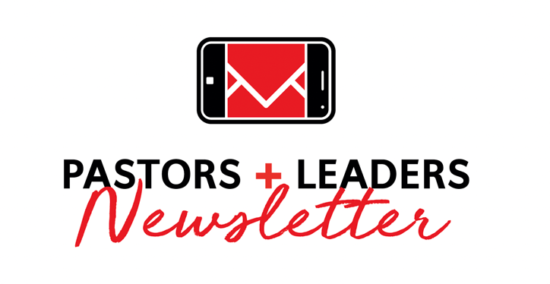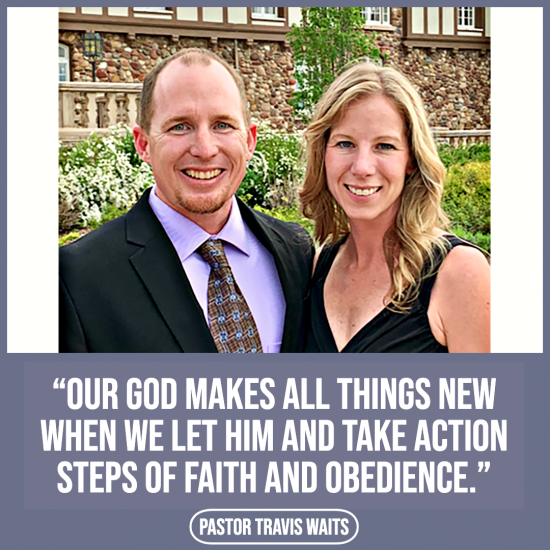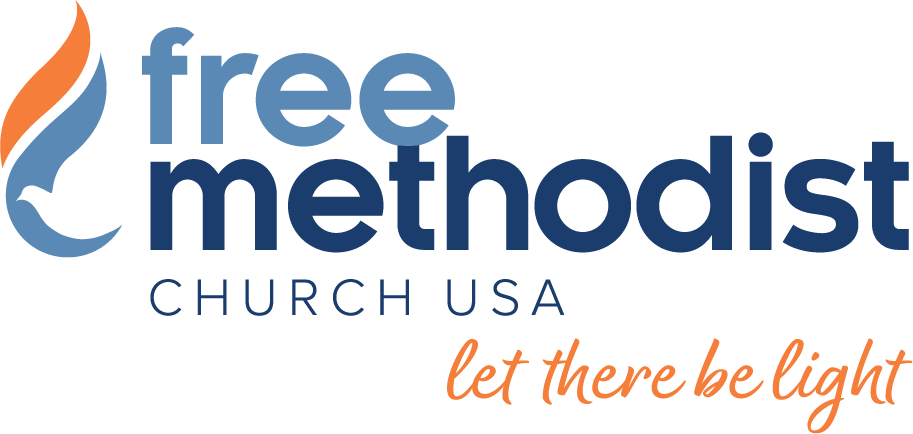

As I sat at the table having my coffee that Monday morning, I felt exhausted. I had no motivation for the day, I was emotionally depleted, and I felt like I just wanted to stay in ‘my cave’ and not talk to another person. What was wrong with me?
The Sunday before had been a success by all accounts. The message at church was powerful, the worship engaging, and the people had responded with steps of life change. The Lord had moved in many, including me, through the encouragement through the day of worship and fellowship with God’s people.
There is an axiom among pastors that says, “don’t quit on Mondays.” With all the highs and lows of working with people, it is a well-known occupational hazard how commonplace spiritual warfare is against fulfilling God’s calling as a pastor. Because of this, burnout is the greatest challenge facing pastors today. Left unchecked, the symptoms grow and become unmanageable. Even as pastors, we will find ways of escapisms and medications to avoid the discomfort of our depletion, pain, or disappointment. Burnout is a result of the progressive compromises we make around the boundaries of self-care.
Having lived through my own burnout, I have experienced the process of God resurrecting life from the shipwreck of the consequences I created. Because of my journey of restoration to pastoral ministry, I am confident there are ways to help one another in ministry avoid burnout. Our God makes all things new – when we let Him – and take action steps of faith and obedience.
“The law of the Lord is perfect, refreshing the soul. The statutes of the Lord are trustworthy, making wise the simple.” Psalm 19:7
The steps I will share here are not new. In fact, I “knew them” before my burnout, but did not practice them consistently. If you have the title ‘Pastor’ you know what I’m going to say, and you’ve likely preached these same principles in your own messages in your church. However, the same calling and passion that got you into ministry – to help people – does not always translate into your habits of taking care of yourself.
We cannot give what we don’t possess, and my friend – we must be instillers of hope, and dispensers of grace – not just to our people, but also to ourselves.
1. Gratitude as a Spiritual Discipline
It is easy to talk about our gratefulness for the gift of grace and our salvation. It is harder to raise our eyes to see the small things we are grateful for when feelings of discouragement, doubt, anxiety, depression, or shame show up.
I learned that gratitude is the antidote for these negative emotions because it resets my heart and mind to a proper perspective. The sun does rise, even on the hardest days. Trusting God above our circumstances is possible but cannot be done alone. Gratitude is a learned attitude, and a spiritual discipline.
“I lift up my eyes to the mountains— where does my help come from?
My help comes from the Lord, the Maker of heaven and earth” Ps. 121:1,2
There were many mornings I struggled to write even three things on a sticky note for my morning gratitude list. I let my circumstances dictate my emotions and perspective. Slowly, as I made my list more and more mornings in a row, God used this to change my perspective. I was able to feel contentment and joy return — even though my outward circumstances had not changed.
We know that God is always with us, and the truth is that He never leaves us. But more importantly, dear pastor, God is FOR YOU regardless of the darkness you feel.
2. Boundaries as Practical Self-Care
We all know there is a physical link between emotional health and mental stability. God wired us this way so that we would take action and not just try to think our way out of things. Knowing the right answer is not the solution, nor the prevention. Our actions matter. Emotions are meant to be indicators, not the dictators of our needs driving our behavior. The Apostle Paul writes:
24 Do you not know that in a race all the runners run, but only one gets the prize? Run in such a way as to get the prize. 25 Everyone who competes in the games goes into strict training. They do it to get a crown that will not last, but we do it to get a crown that will last forever. 26 Therefore I do not run like someone running aimlessly; I do not fight like a boxer beating the air. 27 No, I strike a blow to my body and make it my slave so that after I have preached to others, I myself will not be disqualified for the prize. (1 Cor. 9:24-27)
Healthy choices have a reciprocal relationship with healthy boundaries. If we allow the basics of self-care to slip out of our habits and routine, we open ourselves up to the potential to compromise our character in ways that we would never consider had we not been depleted. Without a proper diet, enough sleep, and consistent exercise our minds and bodies do not function properly. These are the foundational principles of self-care.
Because of this, I am intentional to keep my boundaries around healthy choices, and activities that are life-giving for me. In fact, I put them on my calendar because what gets prioritized in my time is what gets done. Here are just a few things I’ve found helpful:
- I go to the gym 4-5 times per week. Sometimes it’s to lift weights because that is something I enjoy. Other times it’s just to walk on the treadmill or use the elliptical. I always have my headphones with my favorite music — it often becomes “my God time” and resets my soul for the day.
- I have found hobbies that compete for my attention. I love to golf, even though I am not very good. Being out in nature, focusing on the little white ball, all help me relax and adjust my perspective. Have fun!
- I prioritize my God time. Sometimes it’s to journal, read His word, memorize a passage, or listen to music that helps me feel encouraged and worship God. It is consistently inconsistent — meaning I don’t put it in a box of how it “should” look.
I also schedule on my calendar to prioritize quality time with my wife, separate from family time with our kids. Regarding the work week of ministry, I target two days off per week and include at least 24 hours not doing anything “work” related. I schedule my email so that I block out time in my weekly calendar that I will respond to emails. I don’t have email notifications on my phone, and I’ve made it a habit to not respond to emails through my phone.
3. Participating in Redemptive Community.
We are only as sick as our secrets. Many pastors are lonely and choose not to develop consistent friendships. If you are the only one who knows your struggle with the symptoms of burnout – then you are in trouble.
In the past, I was not good at asking for help. In fact, I thought I didn’t need my friends to help, so I would isolate and try to handle life by myself. That did not work and God does not want us to go through life on our own – He intends for us to do life with one another. The only way I was able to make it back from burnout was because of some faithful friends who loved me just as much on my worst days, as they did on my best days.
As pastors, our job, and our calling in the ministry is to help people. We must help ourselves first, before anyone else. This is the pre-flight airline takeoff principle: put your own oxygen mask on first, then help your neighbor. Our Lord gave us the same (and the second greatest) commandment when he said, “Love your neighbor as yourself” (Matt 22:39). How we love ourselves is the standard to which we will love others.
We are only as accountable as we choose to be. Healthy accountability is where we are accountable FOR one another, not TO one another. Healthy accountability means we “bear one another’s burdens,…” (Gal. 6:2). It is through these types of relationships based on transparency, honesty, vulnerability, and authenticity — especially on the hard days, that help us avoid the shipwreck of burnout. I have learned the courage to be vulnerable is a skill that can be developed the more we live in authenticity.
James 5:16 says “confess your sins to each other and pray for each other so that you may be healed. The prayer of a righteous person is powerful and effective.”
1 John 1:9 says that “If we confess our sins, he is faithful and just and will forgive us our sins and purify us from all unrighteousness.”
The truth is, we cannot wear-out God’s forgiveness in our lives. I first heard these two passages coupled together from a pastor friend of mine — speaking about his own recovery from burnout. They have since become tattoos on my soul. Through confession, we get hope and empathy. Empathy – because we see we are not the only person who struggles to live a human life. Hope – because God does heal, forgive, and purify us to have a new life.
Next Steps
My intention in writing this to fellow pastors is to save them some pain. Often our pain becomes our platform and our scars tell the story of God’s faithfulness. I pray that these words have been encouraging and helpful. The next step for you to take is one of action. God takes great pleasure in us, His kids. Burnout does not have to be part of your story. Listen to what God is prompting you to do next, and take action from there. What’s the one thing you are going to do different today toward that goal?
Blessings,
Travis
Bio:
Travis Waits has led in pastoral ministry for over 20 years and holds a Masters Degree from George Fox University. Travis serves as the Operations Pastor for Journey Church in Castle Rock, CO providing organizational development, strategy and systems leadership to pursue the church’s vision. Travis and his wife Jaime met at Multnomah Bible College and have been married for over 21 years. They have three kids ages 20, 18, 15 and enjoy many outdoor activities, including learning to golf.
